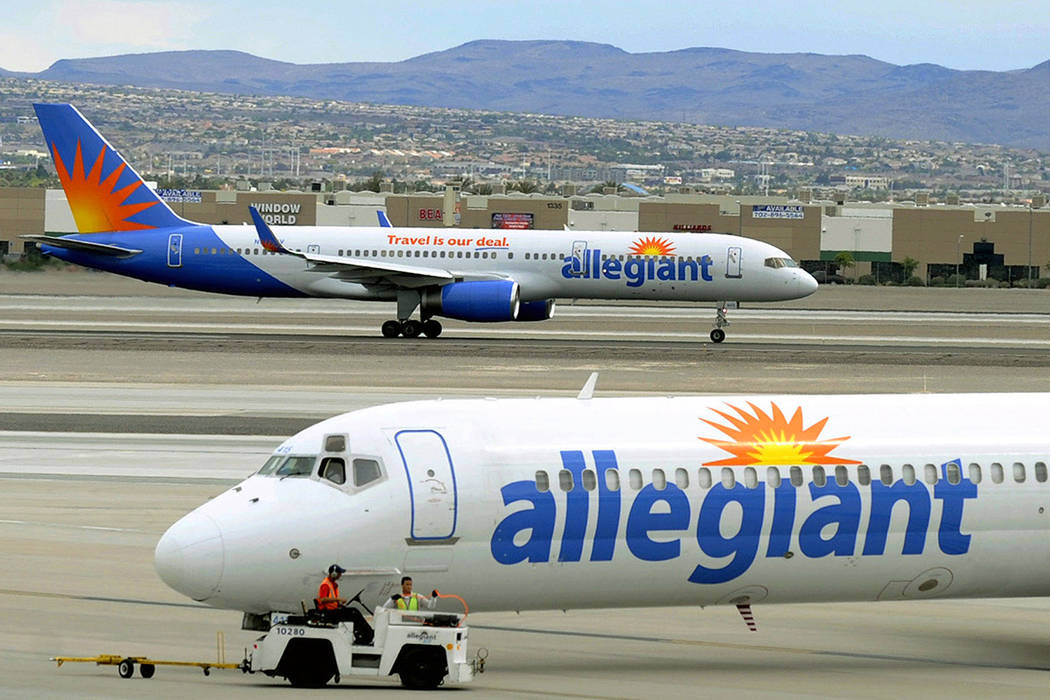FAA proposes $715K fine for Allegiant over engine work
WASHINGTON — Federal safety regulators have proposed a fine of more than $715,000 against Allegiant Air, saying the discount airline failed to properly fix an engine that put out hotter-than-normal exhaust fumes.
Allegiant said Friday that it followed a procedure approved by the manufacturer and the government.
The incident happened in April 2018 with one of the McDonnell-Douglas MD-88 planes that Allegiant has since retired.
The Federal Aviation Administration said after a takeoff in Virginia, Allegiant properly turned off the automatic reverse thrust system on the engine, as recommended by the manufacturer.
But rather than taking the next step of finding the reason that the exhaust gas was too hot, Allegiant deactivated the jet’s reverse thrust system and operated 28 flights over the next eight days, the FAA said.
Allegiant said it followed a procedure developed by McDonnell-Douglas — now part of Boeing Co. — and later approved by the FAA.
The airline’s handling of the incident “never jeopardized the safety of our aircraft or our operations,” said Allegiant spokeswoman Sonya Padgett. “We believe the proposed fine is inappropriate and inconsistent with existing FAA policy.”
The FAA countered that it told Allegiant in 2017 not to deactivate an MD-80’s functioning automatic reverse thrust system unless the system itself was causing overly hot exhaust, because something else could be causing the high temperatures.
The Las Vegas-based carrier has 30 days to respond to the FAA’s allegations, which are civil and not a criminal matter. Airlines frequently negotiate down the size of proposed penalties.
In recent years, Allegiant has faced stepped-up scrutiny from the FAA and criticism from safety advocates after a series of incidents including aborted takeoffs and a high rate of in-flight mechanical problems. The FAA has taken no action against Allegiant, however, saying it was satisfied that it was dealing with problems inspectors found.
Allegiant’s rate of breakdowns appeared to be related partly to the age of its fleet, especially the MD-80-series jets, which were nearly 30 years old on average.
Older planes can be operated safely, but they tend to burn more fuel and require more maintenance. Allegiant retired its last MD-80s in November, replacing them with newer Airbus jets.






















